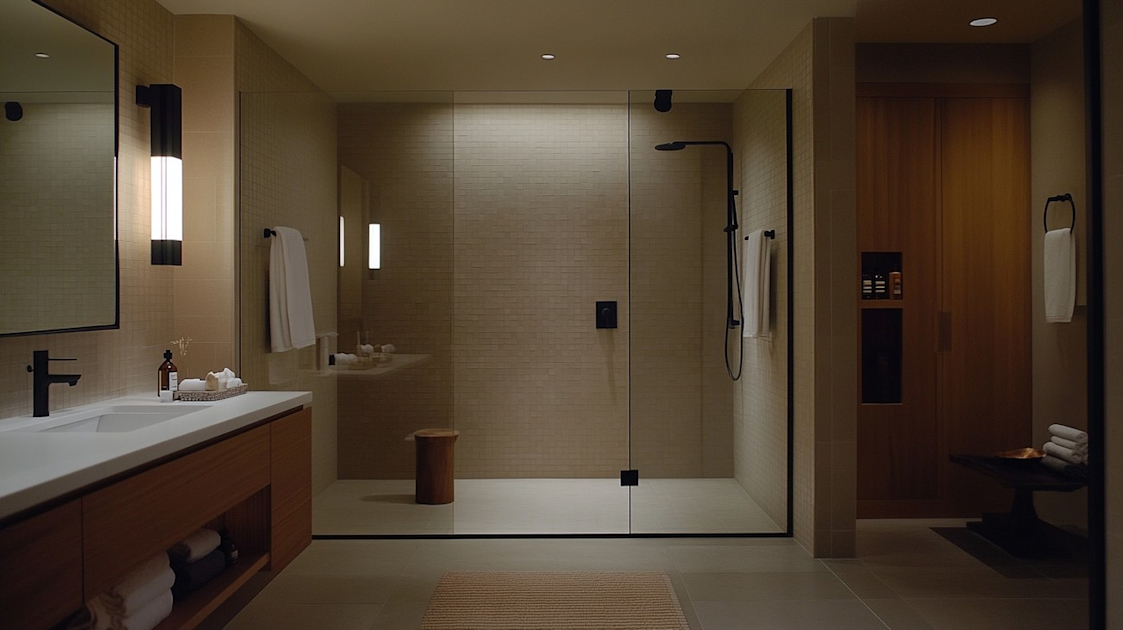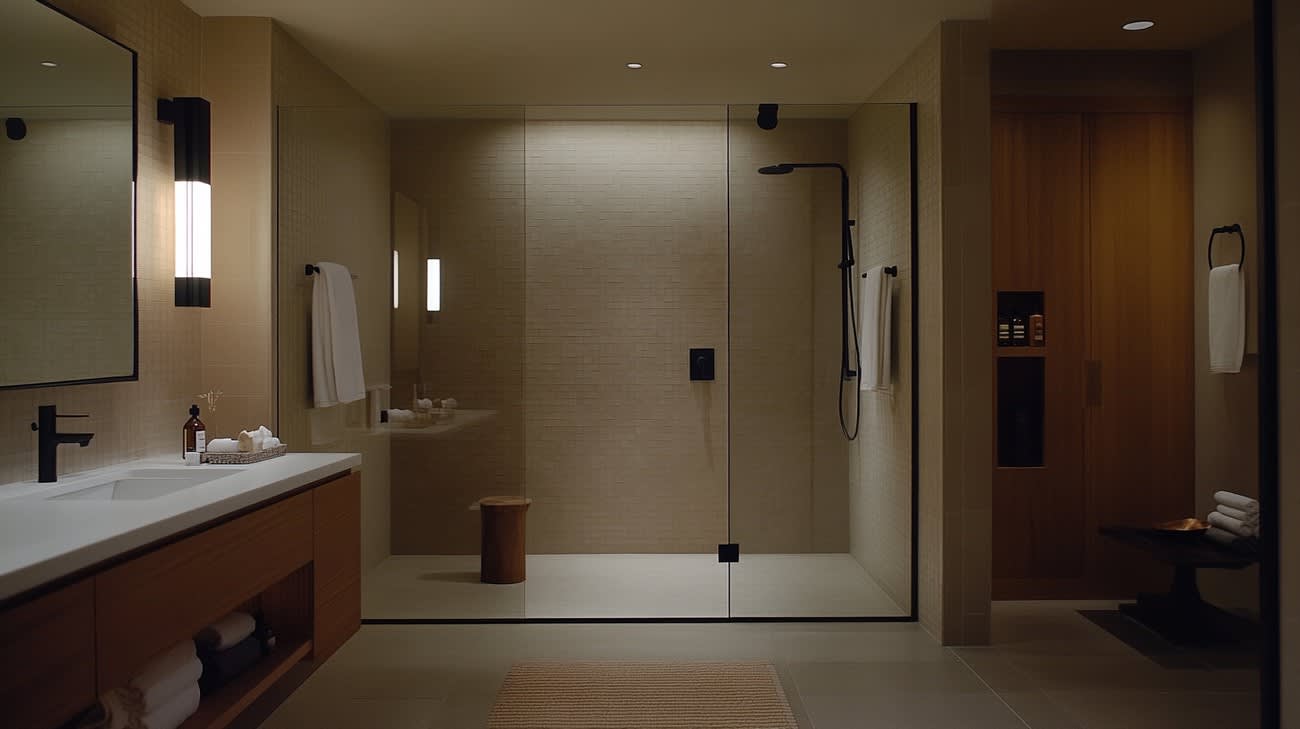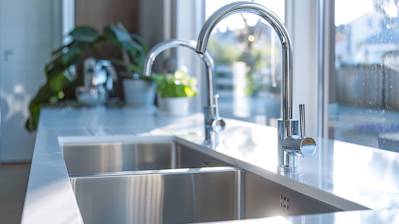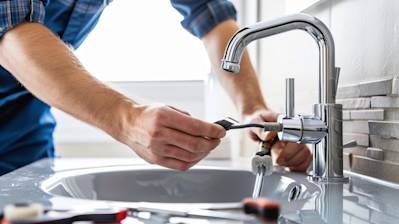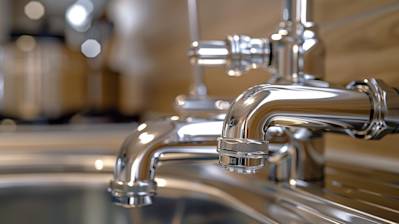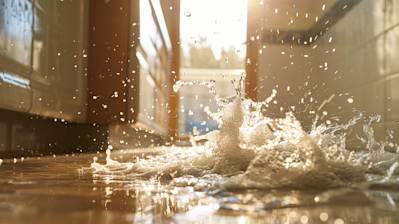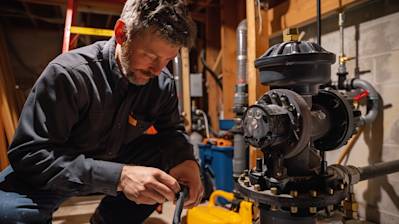Renovating your bathroom brings numerous possibilities, from re-imagining the layout to replacing fixtures. One trend garnering much attention is tub to shower conversion. A well-designed and executed shower conversion can enhance your space's functionality and catapult your comfort.
Upgrading with a Tub to Shower Conversion: What it Means
Tub to shower conversion involves removing an existing bathtub and replacing it with a shower unit. This transformation is perfect for homeowners who prefer a more modern, practical, and spa-like aesthetic for their bathroom.
Reasons to Consider a Tub to Shower Conversion
Converting your tub to a shower comes with several benefits that go beyond aesthetic appeal:
- Increased Space: Showers use less space than traditional tubs; gaining much-needed room in your bathroom
- Value Addition: It modernizes your home, potentially increasing its value.
- Accessibility: With no high tub wall to navigate, showers can be more accessible for seniors and those with mobility challenges.
- Efficiency: Showers are typically more water-efficient than baths, contributing to Earth conservation.
Understanding the Tub to Shower Conversion Process
Understanding the conversion process can ensure that you're prepared for what lies ahead. It's a multi-step process that should be handled by professionals to ensure the best results.
- Evaluation and Design: Professionals will assess your current layout, plumbing, drainage system, then work with you to create the desired design.
- Removal of the Existing Tub: The tub is carefully removed to avoid damaging the existing structures, pipes, and drains.
- Preparation and Installation of Shower: The shower base is then installed, followed by walls, doors, and necessary plumbing fixtures.
Essential Elements to Consider During Conversion
A tub to shower conversion isn't merely replacing your tub with a shower. Several elements need to be considered:
- Shower Base: The shower base, also known as the shower pan, is crucial. It must be slip-resistant and capable of directing water into the drain.
- Walls and Doors: From acrylic to tile or glass, your chosen material can impact aesthetics and maintenance.
- Plumbing Fixtures: Showerheads and controls should be high-quality and user-friendly – think of rainfall showerheads or hand-held options.
- Storage and Seating: Built-in shelves or shower benches can enhance the functionality of your shower.
Tips for a Successful Tub to Shower Conversion
A successful tub to shower conversion depends on the right decisions and actions. Here are some fool-proof tips:
- Professional Installation: Always choose experienced, licensed professionals for the job to ensure high-quality work and adherence to regulations.
- Quality Materials: Investing in high-quality materials can save you repair costs and ensure your shower stands the test of time.
- Personalize: Consider your lifestyle and preferences. Design your shower to suit your needs, whether you want a fast, efficient shower or a more leisurely, spa-like experience.
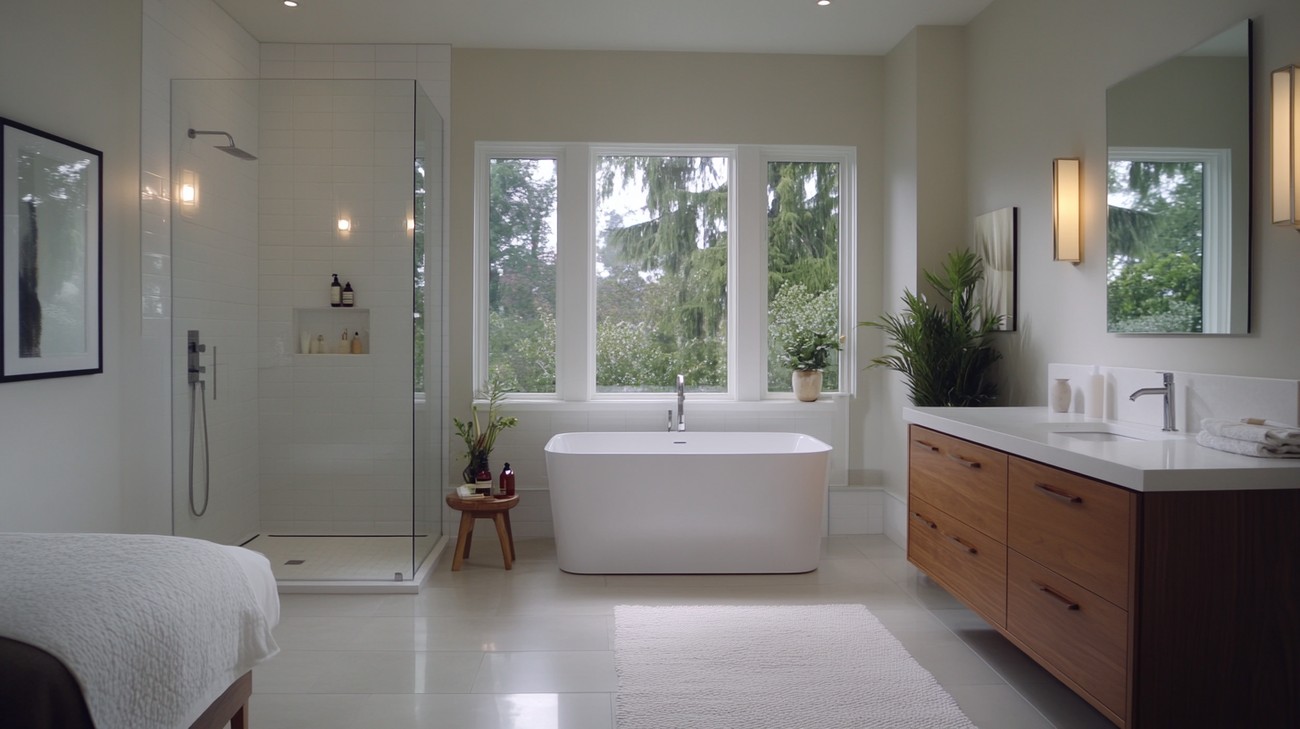
Frequently Asked Questions about Tub To Shower Conversion
How much does a tub to shower conversion typically cost?
The cost of this type of conversion can vary widely depending on factors such as the materials selected, whether or not the plumbing needs to be moved, and your geographical area. On average, you can expect to spend anywhere from $3,000 to $10,000, including labor and materials. However, some high-end remodels can run up to $15,000 or more.
What’s involved in a tub to shower conversion process?
The process begins with the removal of the existing bathtub and assessment of the surrounding walls and plumbing. After this, the new shower base is installed, and any plumbing changes are made. Following the installation of the base, walls are installed or tiled, then the final finishes and fixtures are added. Remember that a tub to shower conversion is a big job and might take several days or even a week to complete.
Are tub to shower conversions a good investment?
A tub to shower conversion can definitely be a good investment! A well-done conversion can increase the value of your home and make it more appealing to potential buyers, especially those who prefer showers over bathtubs. However, if you're planning on selling your home, it's also important to consider the needs and expectations of your potential buyer demographic.
Can I have a tub to shower conversion in a small bathroom?
Yes, you can convert a bathtub into a shower even in a small bathroom. In fact, replacing a tub with a shower can often make a small bathroom seem larger. Walk-in showers often take up less room than bathtubs, which can free up space.
What are some common styles for tub to shower conversions?
There are numerous styles available for a tub to shower conversion. A popular option is to install a walk-in shower, for easy accessibility. Another common style is a standing shower with sliding glass doors. A curbless shower, one without a threshold, is an excellent choice for those who require wheelchair accessibility.
Will I need to have new plumbing for my tub to shower conversion?
Usually, it's not necessary to move the plumbing in a tub to shower conversion, as showers and tubs typically use the same drain. However, if you decide to change the location of the shower, new plumbing may be required.
What are my options for shower walls during conversion?
There are many options when it comes to your shower walls. These options can range from acrylic and fiberglass to ceramic or porcelain tile. You might also consider natural stone, solid surface, and composites. It mostly comes down to your personal preference and budget.
Crafted from resilient and easy-to-clean materials, digital shower controls available?
Yes! Digital shower controls allow you to adjust the temperature, pressure, and steam at the touch of a button. Some even offer remote controls so you can get the shower started from outside the bathroom.

Pros of Tub to Shower Conversion
Increased Accessibility
Converting a tub to a shower can greatly enhance accessibility, especially for those with mobility issues. It is much easier to step into a shower than to climb over the side of a tub, reducing the risk of slips or falls. If you or a loved one have mobility issues, a walk-in shower can be a game-changer. For added safety, consider features like grab bars, non-slip mats, and a seat for comfort during showering.
Space Saving
Converting a tub to a shower can also save space in a smaller bathroom. Showers typically take up less floor space than tubs, making them an excellent choice for smaller bathrooms where space is at a premium. Plus, the open design of a shower can make the bathroom seem larger and more airy.
Better Water Usage
Showers, especially those with high-efficiency showerheads, often use less water than baths. According to the United States Geological Survey, a full tub requires about 36 gallons of water, while a shower uses about five gallons of water per minute. Therefore, a 10-minute shower would only use about half the water of a full bath. This not only conserves water, but can also lead to lower utility bills.
Modern Appearance
A tub to shower conversion generally provides a modern, sleek appearance that can enhance the overall aesthetic of your bathroom. It can particularly help if you are going for a more contemporary or minimalist design theme.
Cons of Tub to Shower Conversion
May Not be Ideal for Families with Young Children
Converting a tub to a shower might not be the ideal choice for families with young children since it might be more challenging for children to shower independently. Tubs are also more effective when it comes to things like bathing multiple children at once, washing pets, or even for children’s play during bath time.
Potential Resale Issues
Though a walk-in shower has its benefits, potential homebuyers might want at least one bathtub in the home, especially those with young children. If your home only has one bathroom and you decide to convert the tub to a shower, it could potentially decrease the marketability of your home to certain buyers.
Requires a Significant Investment
Converting a tub to a shower can be a significant financial investment. Depending upon the existing plumbing, the price can increase if major changes need to be made. Additionally, if higher-end materials are used, the costs could add up quickly. While this conversion can add value to the home, it may not fully recoup the costs at the time of resale.
Potential for Mold and Moisture Problems
If not correctly installed, a new shower could lead to moisture problems, such as mold and mildew. Good ventilation is essential to reduce moisture levels in a bathroom, and the layout of a shower can sometimes make it more difficult for steam to escape, especially if it’s a small or enclosed type. Therefore, integral to the conversion should be plans to ensure good ventilation to prevent moisture buildup and potential damage.

Myths / Misconceptions about Tub to Shower Conversion
A tub to shower conversion is a home improvement project that involves switching out your bathtub for a shower setup. Such an upgrade is usually done to increase the space and functionality of the bathroom, or to make it safer and more accessible, especially for senior homeowners or those with mobility issues. As is the case with many home improvements, a number of myths and misconceptions surround the process of tub to shower conversions. It's essential to clear the air and debunk these myths so as not to misguide homeowners.
Myth 1: Tub to Shower Conversion is Extremely Expensive
Misconception: A lot of homeowners harbor the misconception that transitioning from a bathtub to a shower is a costly affair. However, this is not always the case.
While the price can vary depending on the type of shower, the complexity of the installation, and the materials used, many affordable options exist. You'll have to remember that this is a one-time investment that could enhance your home's value while bringing you years of comfort and convenience. It's advisable to gather several estimates from professionals to get a sense of the average cost before making a decision.
Myth 2: Converting Your Tub to a Shower Will Lower Your Home's Resale Value
Misconception: This belief stems from the viewpoint that every home should have at least one bathtub for it to maintain its appeal to potential buyers.
While this might be true in some cases, changing preferences and demographics are slowly debunking this myth. These days, many homebuyers, particularly millennials and the elderly, prefer showers over tubs due to their convenience, easy accessibility, and lower maintenance. It's still essential to consider the market, neighborhood, and potential buyers in your area before making this decision.
Myth 3: Tub to Shower Conversions are Time Consuming
Misconception: A lot of homeowners believe that converting a tub into a shower is a long and drawn-out process.
While it's true that some jobs may take longer than others due to the need for extensive plumbing changes or dealing with unexpected issues, most average tub-to-shower conversions can be completed within a couple of days. Keep in mind that working with experienced professionals can expedite the process.
Myth 4: DIY Conversion is a Cost-Effective Alternative
Misconception: Many homeowners assume that doing a tub to shower conversion themselves would save them money.
But the truth is, incorrect installation can lead to numerous problems down the line, such as leaks, incorrect sloping, and improper sealing, which can all result in costly repairs. Plus, many warranties become void if the installation is not completed by a professional.
Myth 5: Showers Use More Water than Bathtubs
Misconception: It's a common belief that showers use more water than baths, hence converting would increase your water bill.
This is largely dependent on individual usage patterns. A typical shower would use less water than a full bathtub if kept within a reasonable timeframe. Plus, installing a water-saving showerhead can further reduce water usage, making showers more efficient and environmentally friendly.
Myth 6: All Showers are Slippery and Dangerous
Misconception: There's a general notion that showers, particularly the walk-in variety, pose a slipping hazard.
In reality, many modern shower solutions are designed with safety features such as non-slip floors, built-in seats, and grab bars to prevent accidents. Also, going from a tub to a walk-in shower eliminates the need to step over a high bathtub wall, reducing the risk of falls.
Remember, when it comes to making decisions like a tub-to-shower conversion, it's smart to do your research and be well-informed. Consulting with home improvement professionals can also provide more clarity and help you make the best choices for your specific situation.
Summary
Tub to shower conversion can absolutely align with your bathroom renovation needs without breaking the bank. Not to mention, it can transform the look and feel of your bathroom from dull or outdated to trendy and attractive. Plus, it's an excellent option for those with mobility issues or the elderly, making bathing safer and more user-friendly.
Also, going for a tub to shower conversion is a practical and space-efficient move. It allows you to utilize your bathroom space more effectively, giving you more room to move around. Furthermore, it's less time-consuming to clean and maintain compared to a traditional bathtub, leaving you more time for yourself and other things that matter.
Last but not least, a tub to shower conversion doesn't have to be a massive project. With the help of skilled professionals, it can be completed in a reasonable timeframe, minimizing any inconvenience. Plus, you have a wide array of styles and finishes to choose from, ensuring that your shower matches your overall decor. So go ahead, consider a tub to shower conversion and make your bathroom a more practical and modern space.
About KYPD Plumbing
KYPD Plumbing is your friendly neighborhood expert for all things plumbing in Lexington, KY. Founded by a team with a passion for solving problems and making life smoother for our beloved community, we've built a reputation as reliable, efficient, and trustworthy plumbers. We cover everything from minor repairs and maintenance to serious emergency interventions, always ensuring top-quality service and customer satisfaction. Whether you're dealing with a dripping faucet or a critical pipe burst, KYPD Plumbing is committed to serving you with our best.
Tags: bathroom renovation, home improvement, shower installation,

